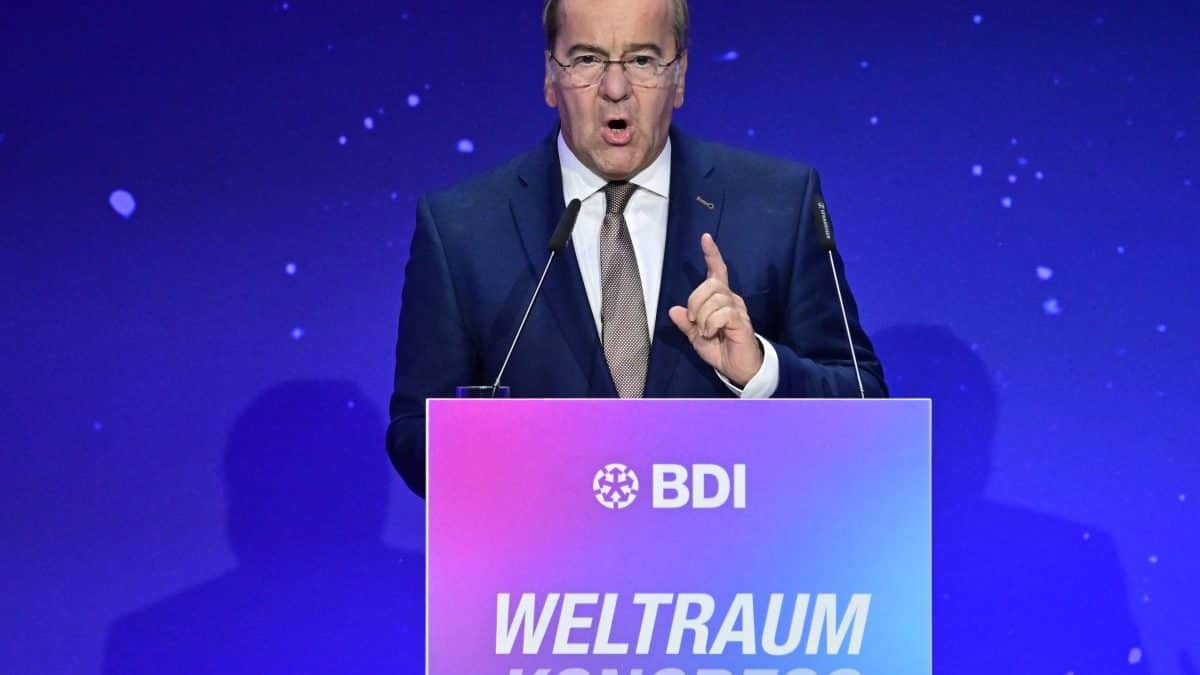World
UK and Germany Raise Alarm Over Russian Espionage in Space

Germany and the United Kingdom have expressed serious concerns over the increasing threats posed by Russian and Chinese reconnaissance satellites. These satellites have been reported engaging in espionage and interference with Western-operated spacecraft. Recently, officials from both countries have highlighted multiple incidents of Russian satellites stalking and jamming their satellites in orbit.
At a conference in Berlin in September 2023, German Defence Minister Boris Pistorius stated, “Russia’s actions, especially in space, pose a fundamental threat to us all. A threat we can no longer ignore.” His remarks followed a specific incident where two Russian reconnaissance satellites were detected closely trailing two IntelSat satellites, which are utilized by the German Armed Forces and its allies.
Pistorius noted that both Russia and China have significantly enhanced their space warfare capabilities in recent years. He elaborated, “They can jam, blind, manipulate, or kinetically destroy satellites.” In response to these threats, Germany has announced a substantial funding increase for its national space programmes, pledging up to €35 billion (approximately $40.2 billion) over the next five years, with about €1.9 billion (around $2.2 billion) earmarked for 2025 alone.
In the UK, Major General Paul Tedman, head of UK Space Command, reported that Russian satellites are actively stalking British assets and jamming signals on a “weekly” basis. He explained that these Russian spacecraft are equipped with payloads capable of observing and collecting information from UK satellites. While jamming is typically executed using ground-based infrastructure, the cumulative effect poses a significant threat to UK space operations.
Experts have raised alarms about the capabilities of Chinese satellites, which they argue could be equally, if not more, formidable than those of Russia. Analyst Juliana Suess from the German Institute for International and Security Affairs (SWP) pointed out that while Russia’s proximity makes its actions pressing for Europe, “the much bigger space power is obviously China.” China has engaged in advanced space maneuvers, including testing a satellite equipped with a robotic arm designed to reposition other satellites into different orbits.
According to CSIS analyst Clayton Swope, China’s activities in space are persistent and their intentions often remain unclear, leaving Western analysts puzzled. In contrast to Russia’s overstretched resources, China has shown a consistent ability to invest in and expand its space program.
Identifying foreign satellites is relatively straightforward, but discerning their intentions and capabilities proves more complex. Analysts monitor Russian satellites by examining their proximity to other satellites, tracking their movements, and analyzing past behaviors. For instance, if a Russian satellite lingers near a European communications satellite, it raises suspicions of espionage or signal interception.
Some Russian satellites have allegedly tested weapon-like systems by firing projectiles in lower orbits. Experts suggest that Russia has a pattern of allowing its satellites to “shadow” others, akin to sleeper cells poised to act. This behavior is not new; concerns were previously raised by the US and France in 2015 and 2017 regarding Russian satellites surveilling their assets.
The current incidents are viewed as part of a broader pattern linked to Russia’s ongoing conflict in Ukraine and its rising tensions with NATO. In light of these threats, Germany’s commitment to enhancing its space capabilities underscores a significant shift in defense strategy. The UK has also announced plans to increase its defense spending and is currently testing new sensors designed to detect potential laser threats in space.
Meanwhile, France has been advocating for the development of “bodyguard satellites.” These dedicated satellites would serve the singular purpose of protecting other space assets from potential threats.
While the US maintains a historical edge in space investment, European allies are collaborating through NATO to address these emerging challenges. In 2019, NATO officially recognized space as an “operational domain” and reaffirmed that its collective defense principle, Article 5, applies to attacks in space. This evolving landscape of space security reflects the increasing recognition of the strategic importance of space in modern defense planning.
-

 World5 months ago
World5 months agoSBI Announces QIP Floor Price at ₹811.05 Per Share
-

 Lifestyle5 months ago
Lifestyle5 months agoCept Unveils ₹3.1 Crore Urban Mobility Plan for Sustainable Growth
-

 Science4 months ago
Science4 months agoNew Blood Group Discovered in South Indian Woman at Rotary Centre
-

 World5 months ago
World5 months agoTorrential Rains Cause Flash Flooding in New York and New Jersey
-

 Top Stories5 months ago
Top Stories5 months agoKonkani Cultural Organisation to Host Pearl Jubilee in Abu Dhabi
-

 Sports4 months ago
Sports4 months agoBroad Advocates for Bowling Change Ahead of Final Test Against India
-

 Science5 months ago
Science5 months agoNothing Headphone 1 Review: A Bold Contender in Audio Design
-

 Top Stories5 months ago
Top Stories5 months agoAir India Crash Investigation Highlights Boeing Fuel Switch Concerns
-

 Business5 months ago
Business5 months agoIndian Stock Market Rebounds: Sensex and Nifty Rise After Four-Day Decline
-

 Sports4 months ago
Sports4 months agoCristian Totti Retires at 19: Pressure of Fame Takes Toll
-

 Politics5 months ago
Politics5 months agoAbandoned Doberman Finds New Home After Journey to Prague
-

 Top Stories5 months ago
Top Stories5 months agoPatna Bank Manager Abhishek Varun Found Dead in Well









